Starting a new job in the midst of a pandemic sounds like a daunting task, let alone starting a teaching job. It’s a task that calls for someone ready to adapt and change their lessons at the drop of a hat.
Lydia Palace was up to the challenge.
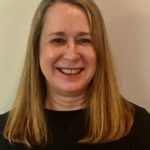
Palace is a new classroom teacher for the deaf and hard of hearing program at McCallum. Palace has been teaching at different AISD schools for the past eight years and previously spent 13 years teaching at various schools for the deaf and hard of hearing.
When she heard of an opening at McCallum, she jumped at the opportunity to teach here.
“The Regional Day School Program for the Deaf needed a classroom teacher at McCallum for three ninth-grade students,” Palace said. “I was happy to move to a school where my skills were needed.”
She also said she had only heard glowing reviews of Mac.
“McCallum High has a great reputation,” she said, “and it is an honor to be part of the Mac Knight faculty.”
While teaching online was difficult with Palace’s experience in special education, changing her curriculum to accommodate everyone and make them as comfortable as possible is second nature.
Palace’s co-worker and fellow DHH teacher, Carol Dickson, points out that adaptability is essential to Palace’s job.
“In high school, a DHH Teacher has to be in contact with each student’s academic teacher to help the student be more successful,” Dickson said, “so the biggest word that a DHH teacher needs in their vocabulary is flexibility.”
Despite her experience, Palace describes her transition to all BLEND lessons as a “steep learning curve” and that it’s “a lot of hard work.”
One of the largest struggles that went hand in hand with online learning was technical issues.
“Working with a hearing-impaired student over the computer can be a challenge,” Dickson said. “As a teacher, it is not known what the student is hearing. Is there a lag time? Is the teacher’s voice garbled? Is the student’s equipment working properly?”
Although it’s much easier to work with students in the DHH program in person, the teachers are adapting as best they can.
Putting aside the difficulties she endured while online learning, Palace did see the positive of the situation through the district’s initial prioritization of safety.
“I feel grateful that our school district respects science and puts the health and lives of their students and staff first,” Palace said.
Plus, she said before teachers were required to report to campus, she appreciated the added bonus of no commute.
The challenges of in the special needs field can scare many qualified teachers away, but Palace said that’s precisely why she wanted to work in this position.
“I chose the deaf education profession because even from a young age (kindergarten) I would stand up or advocate for those that are more vulnerable,” she said. “I enjoy helping people and I love to teach.”
With this combination, she was pulled towards the deaf education field. Palace’s favorite part of her job is getting to work with all the teachers and students, which is only making online learning more difficult.
Palace relayed that she’s been anxiously following the data since the original outbreaks in China.
“I was expecting to start online,” she said. “I have been following the COVID data carefully since December. My youngest son, my daughter in law and my only granddaughter live in China!”
Because of the personal aspect of the outbreaks and missing face to face teaching, she’s very much looking forward to a vaccine.
It takes a brave person to start up at a new school deep into a global pandemic but Ms. Palace seems more than capable of the challenges ahead. Not only that, she seems eager to do it.
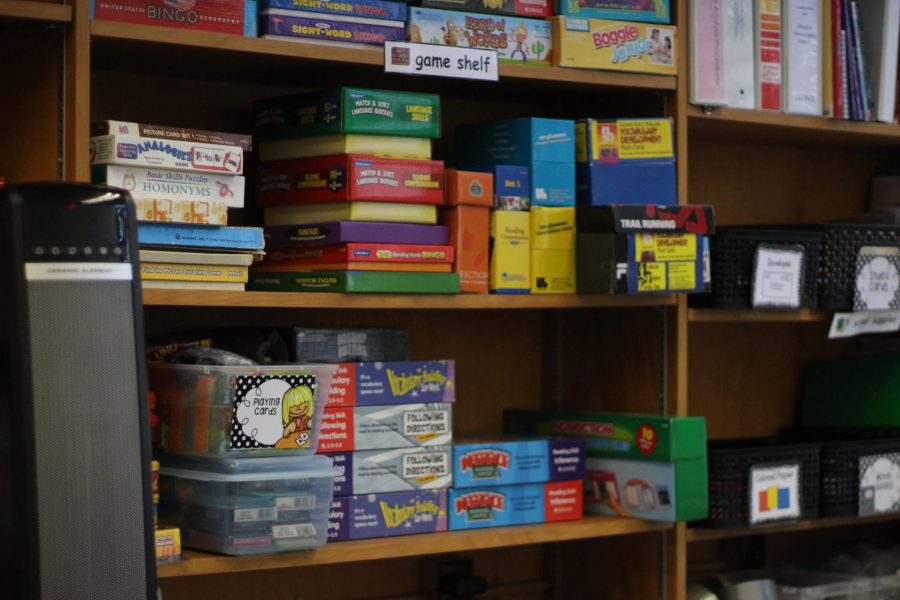


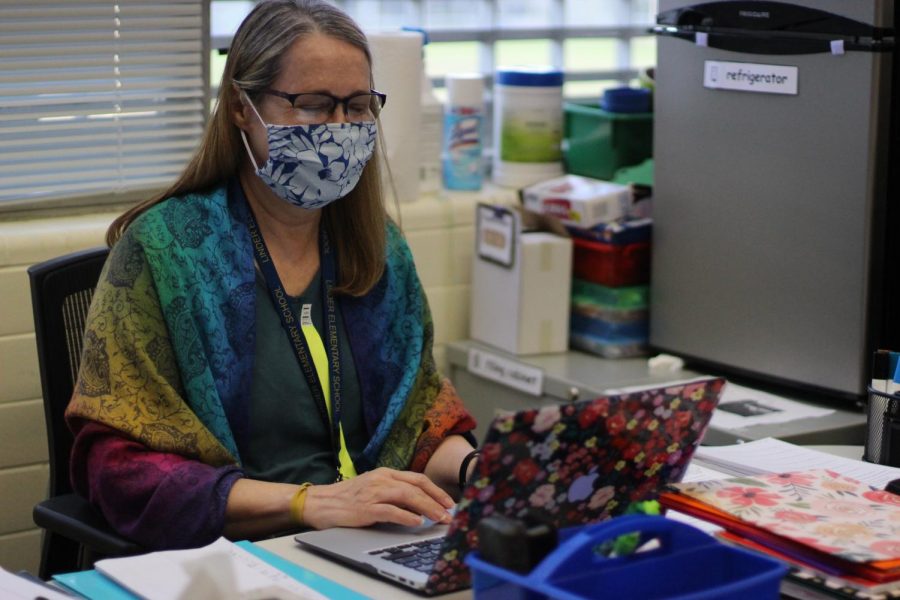
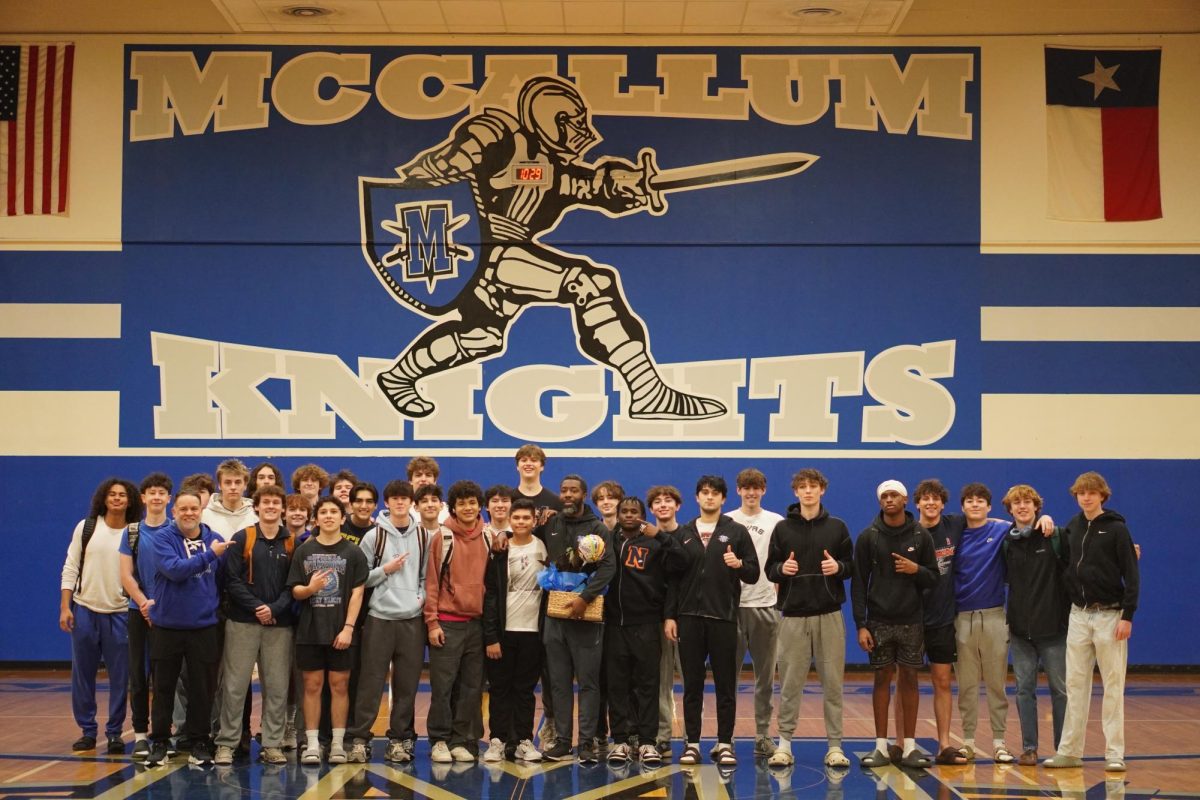
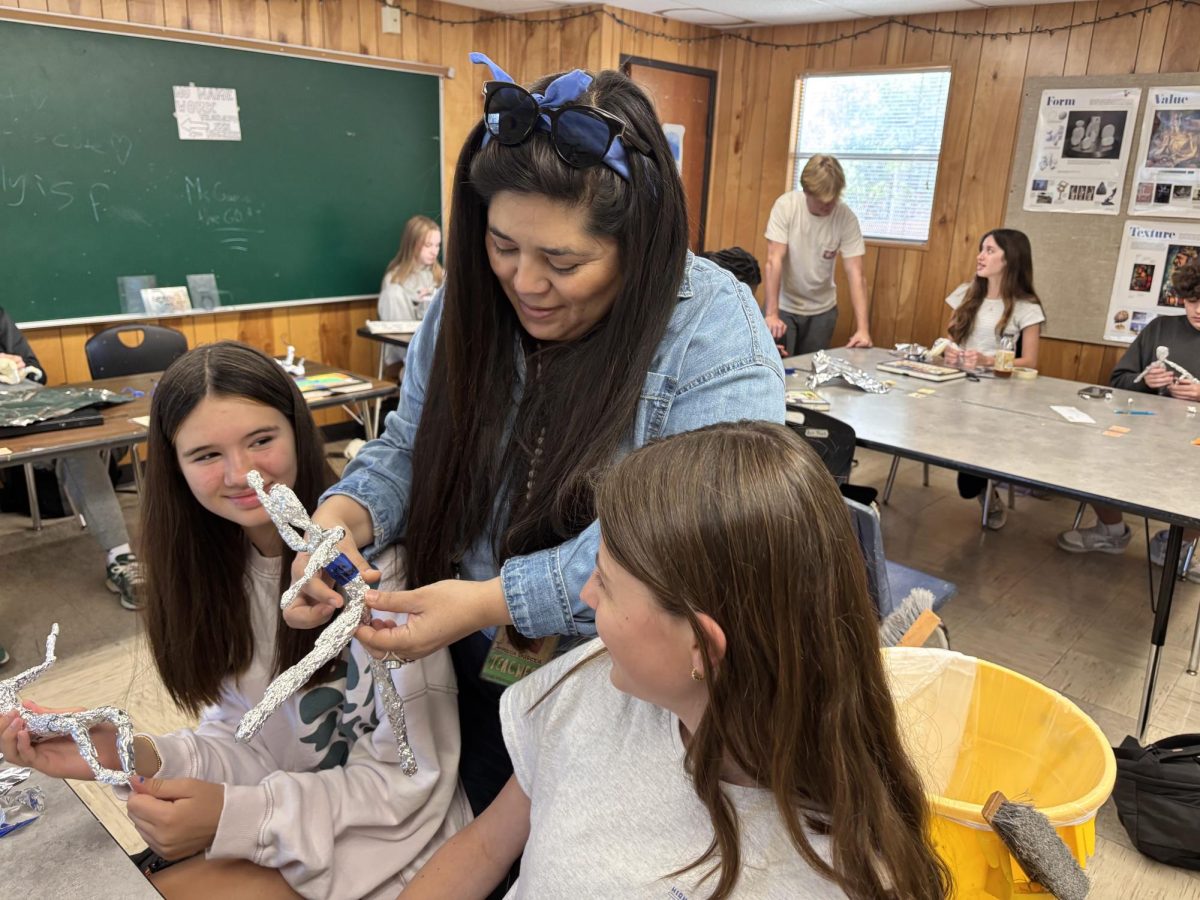

![This is Paul Pew's high school graduation photo. The 2023-2024 school year marked his 34th year of teaching. He began his career in Washington, then came to McCallum where he has taught for the past 17. At heart though, he’s really a musician. One that grew up in many different places, including Chicago and California, who took interest in teaching from a young age. His high school choir experience, along with some international singing in college, persuaded him that teaching was his path. He knew he wanted to be able to help create works of art in the fine arts department as well, so he joined McCallum. He’s worked on many of the musicals over the years, even before Joshua Denning, the former theatre director of the fine arts program arrived. Before him was a different director: Tatum.
“I was the music director for all the musicals,” Pew said. “[Mr. Tatum and I] worked very hard, and I just got to the point where I was satisfied with it.” Although he may not be as prominent of a member in the musical theatre community at McCallum anymore, he still plays piano. “I still do a lot of music down at the Music end of the building,” Pew said. Photo courtesy of Paul Pew.](https://macshieldonline.com/wp-content/uploads/2024/07/Paul-Pew-1974-888x1200.jpg)
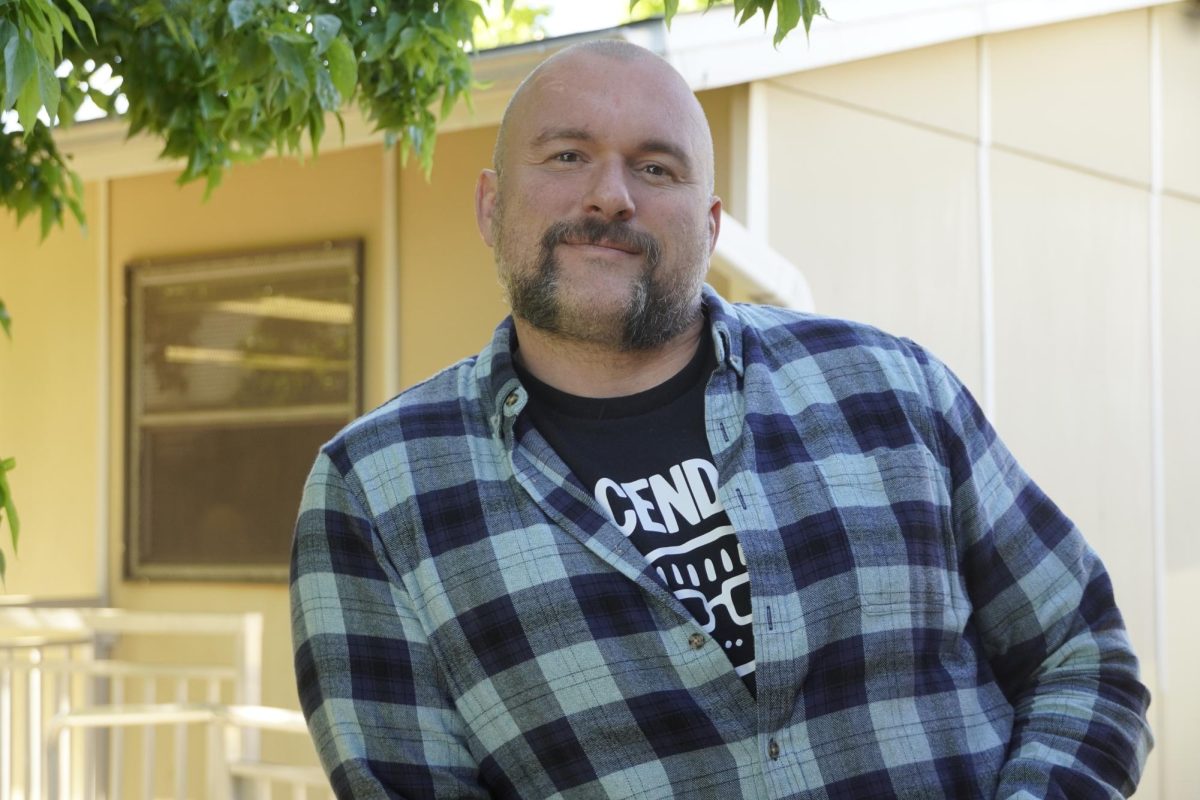
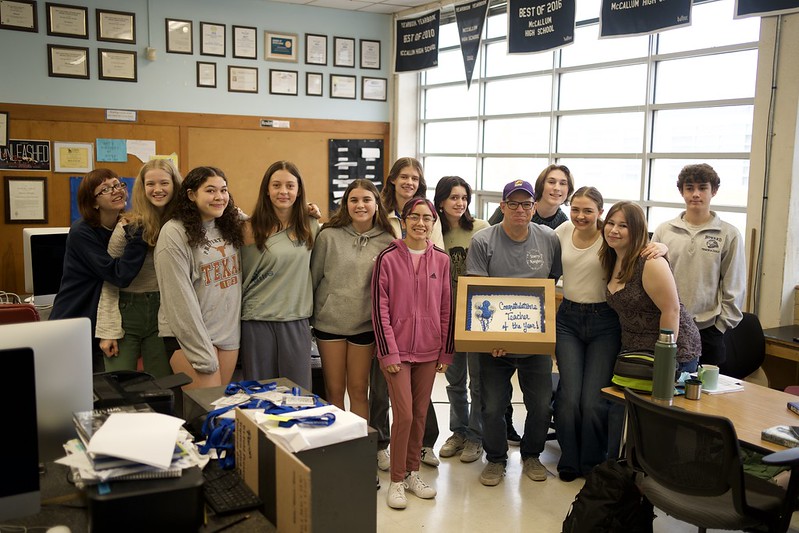
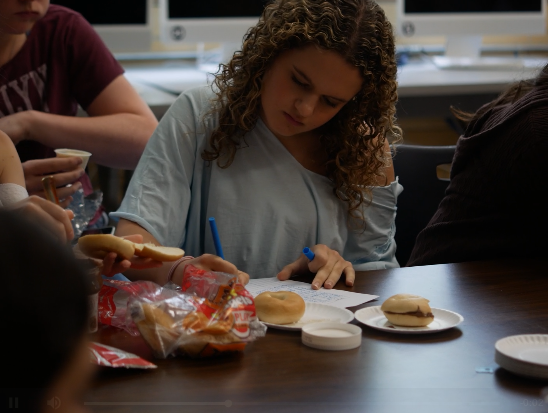
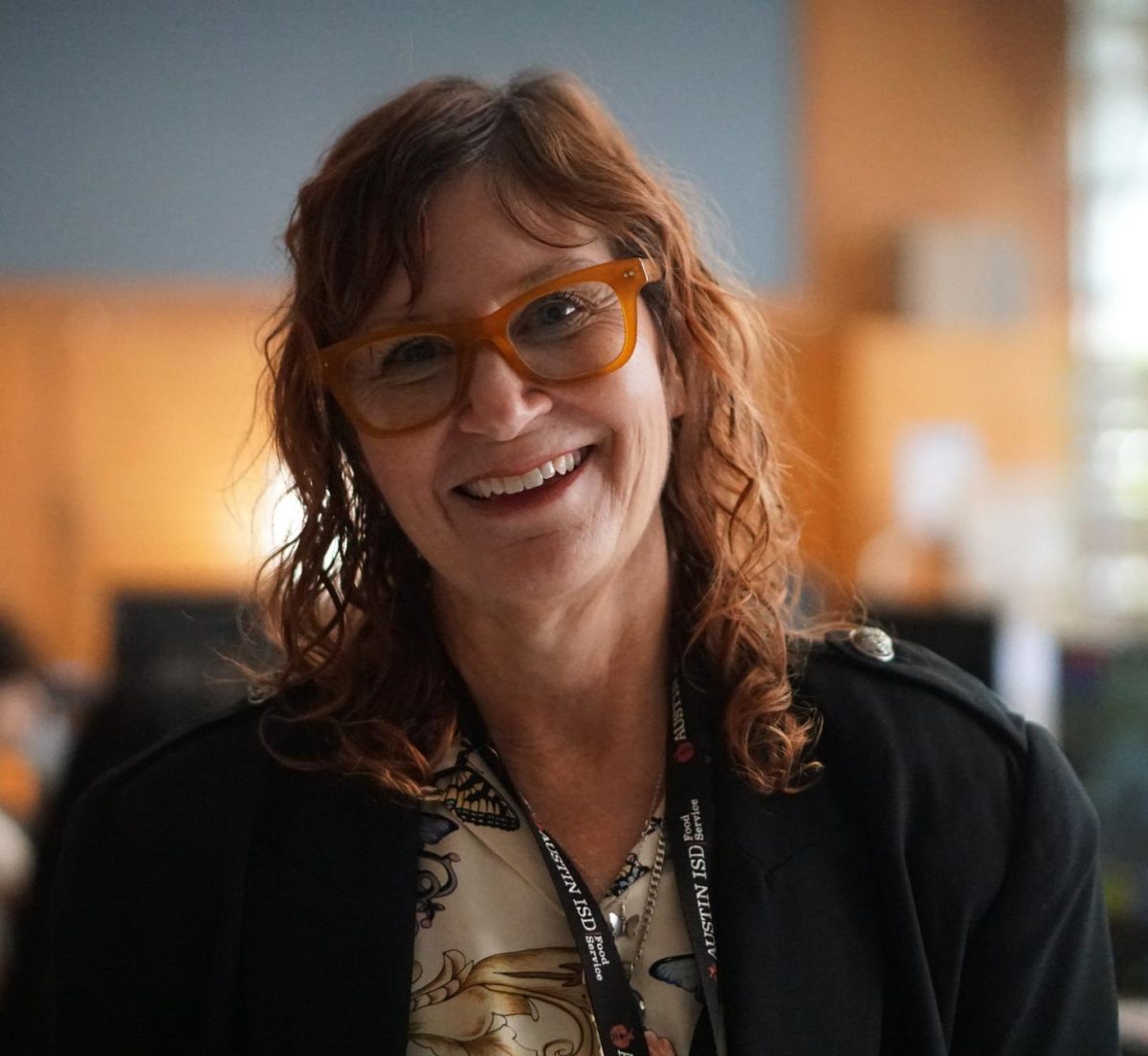


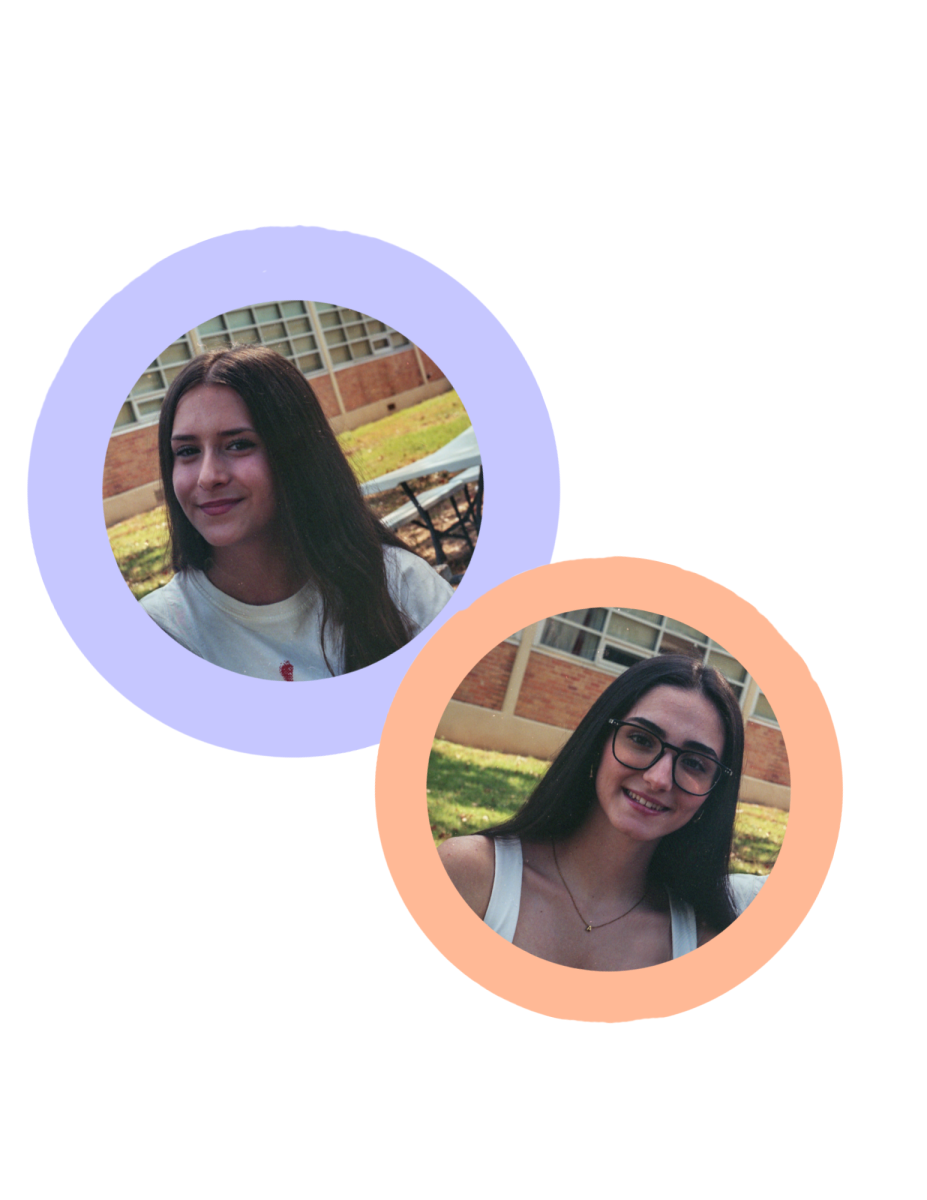
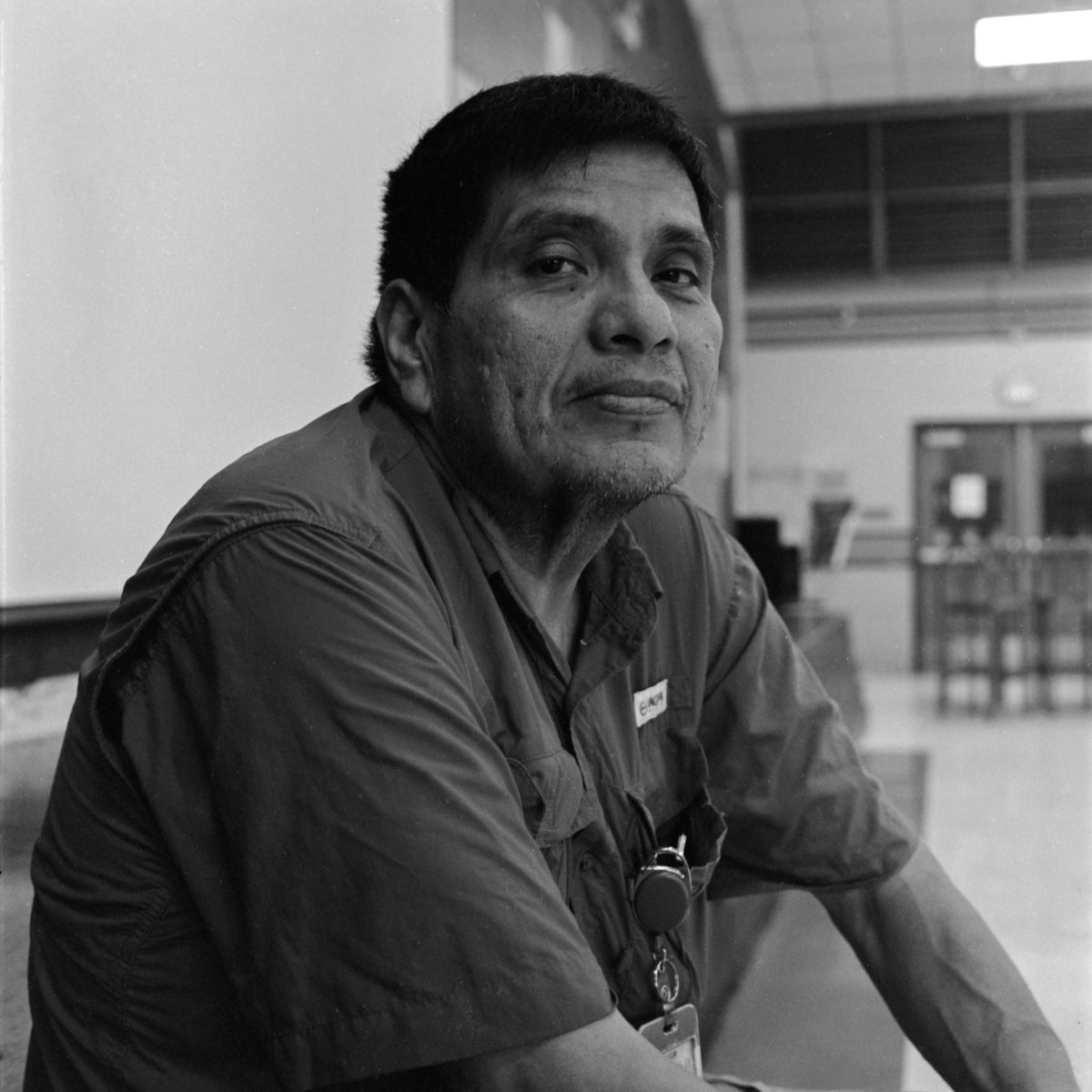
Anabel Tellez • Nov 17, 2020 at 10:01 pm
I really enjoyed reading this article and I liked the way we where able to learn about Mrs. Palaces backstory.